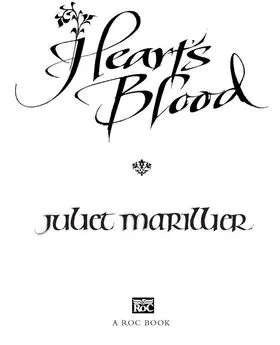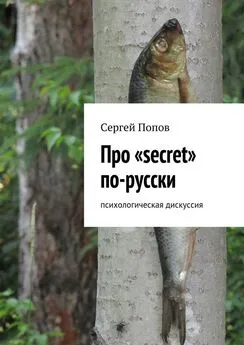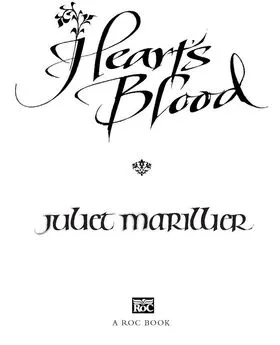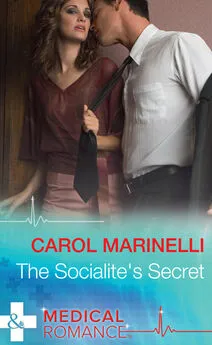Cybele's Secret - Juliet Marillier - Cybeles Secret
- Название:Juliet Marillier - Cybeles Secret
- Автор:
- Жанр:
- Издательство:неизвестно
- Год:неизвестен
- ISBN:нет данных
- Рейтинг:
- Избранное:Добавить в избранное
-
Отзывы:
-
Ваша оценка:
Cybele's Secret - Juliet Marillier - Cybeles Secret краткое содержание
Juliet Marillier - Cybeles Secret - читать онлайн бесплатно полную версию (весь текст целиком)
Интервал:
Закладка:
“Paula!”
I dragged my eyes away from the unearthly figure on the pirate vessel; then, seeing my father’s expression, I went quickly to his side. “What is it, Father? Are you unwell?” It had been a long time since that terrible winter when he had been too ill to stay at home in the mountains. Father had been much better of late. Still, I worried. Right now he looked old. “Father, you should sit down,” I said, motioning to a bench. I glanced back toward the Esperança; the apparition had vanished.
“I’m fine, Paula. This is Master Giacomo of Genoa, another colleague of Salem bin Afazi.” Out of courtesy, he continued to use Greek, which he had told me was a shared tongue of traders in these parts. There would be few who spoke our own language here. “Giacomo, let me present my daughter Paula, who is here as my assistant.”
The Genoese sketched a bow, his shrewd eyes evaluating what he could see of me behind my modest scarf and demure gown.
“There’s been a change of plan,” Father said. He was twisting his hat between his hands; it would need steaming to regain its shape. He had not sat down. “Master Giacomo has procured lodgings for us in the Galata district. It’s in a han, a trading center, where there will be storage for our goods as well. He says it will be quite proper for you to stay there; many of the Genoese merchants live nearby with their families, and Giacomo and his wife will be in residence on the upper floor. The establishment is well guarded. Our cargo will be taken there, not to Salem’s warehouse.”
I observed the lines on my father’s face, the grayish tinge around eyes and nose. I waited for him to speak again.
“Salem’s dead, Paula,” Father said flatly. “It happened not long ago. In keeping with Muslim practice, he was buried within a day.”
“Oh, no!” It was a shock even to me. Father and Salem had had a close trading partnership for years, exchanging sensitive information, helping each other to achieve audacious deals, supporting each other in negotiations. They had built a delicate bridge between cultures. They had been friends. “I’m so sorry, Father. What happened?”
The Genoese trader cleared his throat, glancing at Father, and Father gave a weary nod.
“He was murdered,” said Master Giacomo. “Done to death in an alleyway not far from his home, the perpetrators unknown. We must all be watchful.”
We walked from the docks up a steep, winding street. Despite the bad news, I could not help feeling excited by the color and life and sheer difference of the place. I realized that no matter how much I had read about Istanbul and its history, nothing could have prepared me for the real thing. There were so many people here, more people than I had ever seen at one time before, even in the very center of Braşov on market day. My head went from side to side as I tried to take in everything at once—little shops by the roadside piled high with strange-looking fruit, a man in a tall hat balancing a stack of round, flat loaves, another with a donkey bearing a pair of bulging skin bags.
“Water,” Father said, seeing me staring. “He’s making a delivery to one of the houses; most folk have a cistern near their gate. Fresh supplies come in daily.”
The noise was overpowering—folk calling out to advertise their wares, donkeys braying, cart wheels rumbling on the stones of the street—as if the place could barely contain its bustling human traffic. I had heard that more than three hundred thousand people lived in Istanbul, most of them Turkish. Here in the trading district of Galata, the faces I saw around me were more of a mixture. Turbans mingled with the looser headdresses of southern regions, merchants’ velvet hats went side by side with the skullcaps of Jews. The crowd was almost exclusively male.
“The Galata Tower,” Father said, pointing up the hill. “Built by the Genoese before the Ottoman conquest. This district was once an independent city-state. Those times are long past, but a good many of the fortifications remain. Business continued to flourish under the sultanate. Very sensibly, the Ottomans saw the advantages of a tolerant approach to successful foreign traders in the city and made an arrangement with the Genoese. Our han is along this way.”
The trading center where we were to stay was an imposing building shaped in an open rectangle of two stories, set around a courtyard with trees and fountains. The ground floor was bordered by a broad cloister with arches to the court. From here, doors opened to a series of chambers in which cargoes could be safely stored. Under the covered area’s shade, traders had goods set out for inspection: carpets and fine pottery and silks. Small clusters of buyers were conducting intense conversations. On the upper level, reached by steep stone steps, were living quarters and private rooms for business meetings, along with privies and washing facilities. By the time we reached our allocated apartment, my feet were hurting and my head was reeling as I tried to absorb everything.
It was a relief to see another woman; there had been so few out in the street that I had begun to feel uncomfortably conspicuous. Giacomo’s wife, Maria, came bustling along the upstairs gallery, introduced herself, and promised to bring us coffee. She showed us the amenities of our quarters, which were not luxurious. Most of the rooms, she explained, were designed for merchants traveling alone and consisted of a small bedchamber and a slightly larger meeting room. Ours had the added feature of a closet-sized extra space with its own tiny window set with red and blue glass. This little chamber was where I would be sleeping. I eyed it dubiously but thanked her in my best Greek. I would be getting a lot of practice in this language, which we would be using for most of our business negotiations in Istanbul.
“Well, Paula,” Father said when Giacomo and Maria were gone, “here we are. A loss, a challenge, but I suppose we can do it. I’ve asked Giacomo to put the word about that we’re looking for a guard. We’ll interview the applicants first thing tomorrow.”
“First thing” apparently meant before breakfast. I had been awake since dawn anyway, roused abruptly by the ringing voice of a muezzin chanting the morning call to prayer from a nearby minaret. A motley collection of men was waiting in the courtyard below our quarters. Father called them up to the gallery one by one, and I observed from just inside the doorway of our apartment, my veil over my head. Some of them spoke only Turkish. Some could not provide names of past employers. Some balked when it was explained that they would be protecting me rather than my father. One or two looked as if they wouldn’t have the strength to fight off a stray terrier.
Father and I had a good understanding. It needed no words for us to agree on a short list of three men, whom Father asked to wait in the courtyard. We sat out on the gallery, where a small mosaic-topped table and two chairs had been placed for us. In this Genoese quarter, it was recognized that not all visitors were used to the Turkish habit of sitting cross-legged on cushions.
From our vantage point, we could look down on the would-be bodyguards standing awkwardly around a small fountain.
“You choose, Paula,” Father said. “I’m happy with any of those three. They all speak adequate Greek as well as Turkish, and they’ve got plenty of brawn.”
“Are you sure you want me to make the decision, Father?”
“The fellow’s going to be spending more time in your company than mine.” His attention was caught by movement farther along the gallery. “Excuse me, I won’t be a moment. I must catch Giacomo before he goes out.” He got to his feet and headed off in the direction of the Genoese merchant’s living quarters, leaving me to mull over the bodyguard question on my own.
In fact, I had not liked any of the applicants much, although I could see they were suitable. The first had looked pugnacious. The second, spotting me, had used a moment when Father’s attention was elsewhere to give me a look I did not care for. There had been something in the third’s tone of voice that suggested he was confused as to my reasons for being in Istanbul at all, let alone needing a personal guard. I glanced down to give them another look over. Now there were four men waiting on the grass by the fountain: A newcomer had joined our short-listed three. I watched him question the others and be given what was clearly a negative. A brief, intense dispute ensued, then the new arrival headed up to our floor, taking the steep external steps in three easy bounds.
I looked along the gallery, but there was no sign of Father. The man was advancing toward me in big strides. He came to a halt four paces away from where I sat. I took a deep breath and looked up at him. A long way up. He stood head and shoulders over the others Father had interviewed and was, quite frankly, the most intimidating-looking young man I had seen in my life. His eyes were of an unusual yellowish green shade and had an intensity that suggested he was poised to attack. His face was broad, with well-defined cheekbones and a strong jaw, and his complexion was winter-pale. A jagged scar ran from the outer corner of his right eye down to his chin. His dark hair was thick and wayward; an attempt to discipline it into a plait had not been entirely successful. He was of athletic build, the shoulders broad, the arms bulging with muscle. He wore loose trousers under a long white shirt with an embroidered waistcoat over it. A broad sashlike belt held an assortment of knives, and there was a curved sword in a scabbard on his back. I waited for him to ask where my father was. I wished he would get on with it; I was developing a crick in the neck.
Abruptly, the large young man dropped to one knee, taking me by surprise. Now his eyes were closer to my level. “You are the merchant seeking a personal guard?” he asked in fluent Greek.
I grinned. I couldn’t help myself. If it had been up to me to interview further applicants, I would have hired this giant on the strength of that question alone.
“You laugh?” the large young man said.
“Not at you. My father is the merchant. I am his assistant.” I glanced over my shoulder. There was still no sign of Father, and the men down in the courtyard were starting to look restless. It was against the rules of social etiquette for me to conduct an interview alone with a young man, even if, as his behavior suggested, this one was not a Muslim. Should I ask him to go back down and wait, or make a start and save Father time and effort? I was here to help, after all, to prove my worth. I gathered my composure and arranged my features into a severely capable expression. “Your name?”
“I am called Stoyan, kyria.” He used the polite form of address for a lady. “A Bulgar.”
“My name is Paula. My father is Master Teodor of Braşov.” This was the name my father used in his official dealings; the merchant town of Braşov was his birthplace and mine. “We come from Transylvania. Is it too much to hope you speak Turkish as well?”
“My previous employer was the merchant Salem bin Afazi, kyria. My Turkish is not that of an educated man, but I speak and understand the language adequately. I am twenty years of age and in good health. I am very familiar with the city and well trained in the skills required for a bodyguard.”
Salem bin Afazi; that was an odd coincidence. I could hardly say what sprang first to my mind: that Stoyan did not seem to have done a very good job of guarding his last employer. I hesitated. Only twenty. He looked older. Stoyan remained kneeling in front of me, his eyes fixed on the floor of the gallery. He offered nothing further. I willed Father to return, but he remained invisible along the gallery. In the end, I decided to come right out with it. “Salem bin Afazi was a friend of my father’s,” I said. “We were shocked to hear of his death. What happened?”
Читать дальшеИнтервал:
Закладка:








